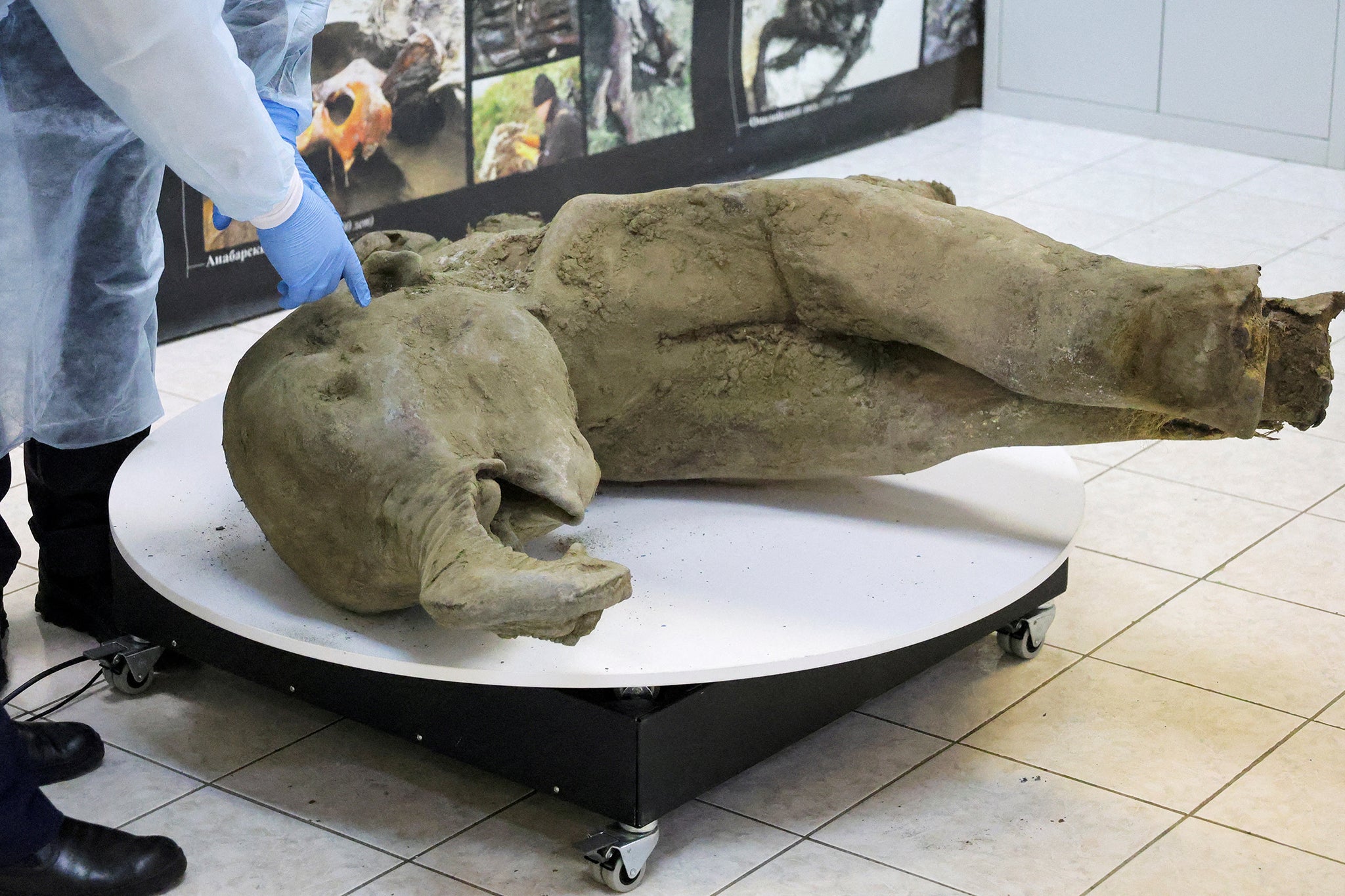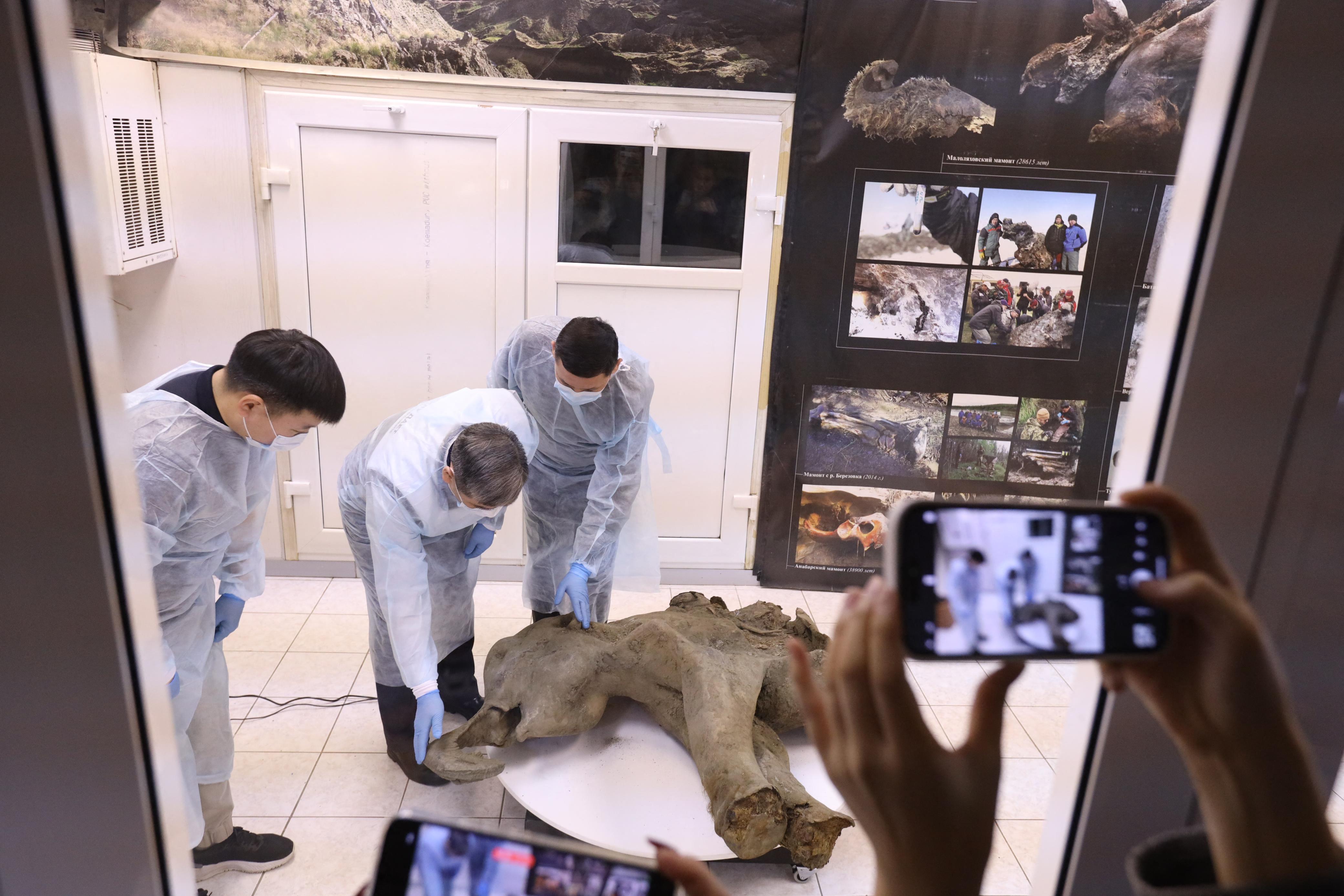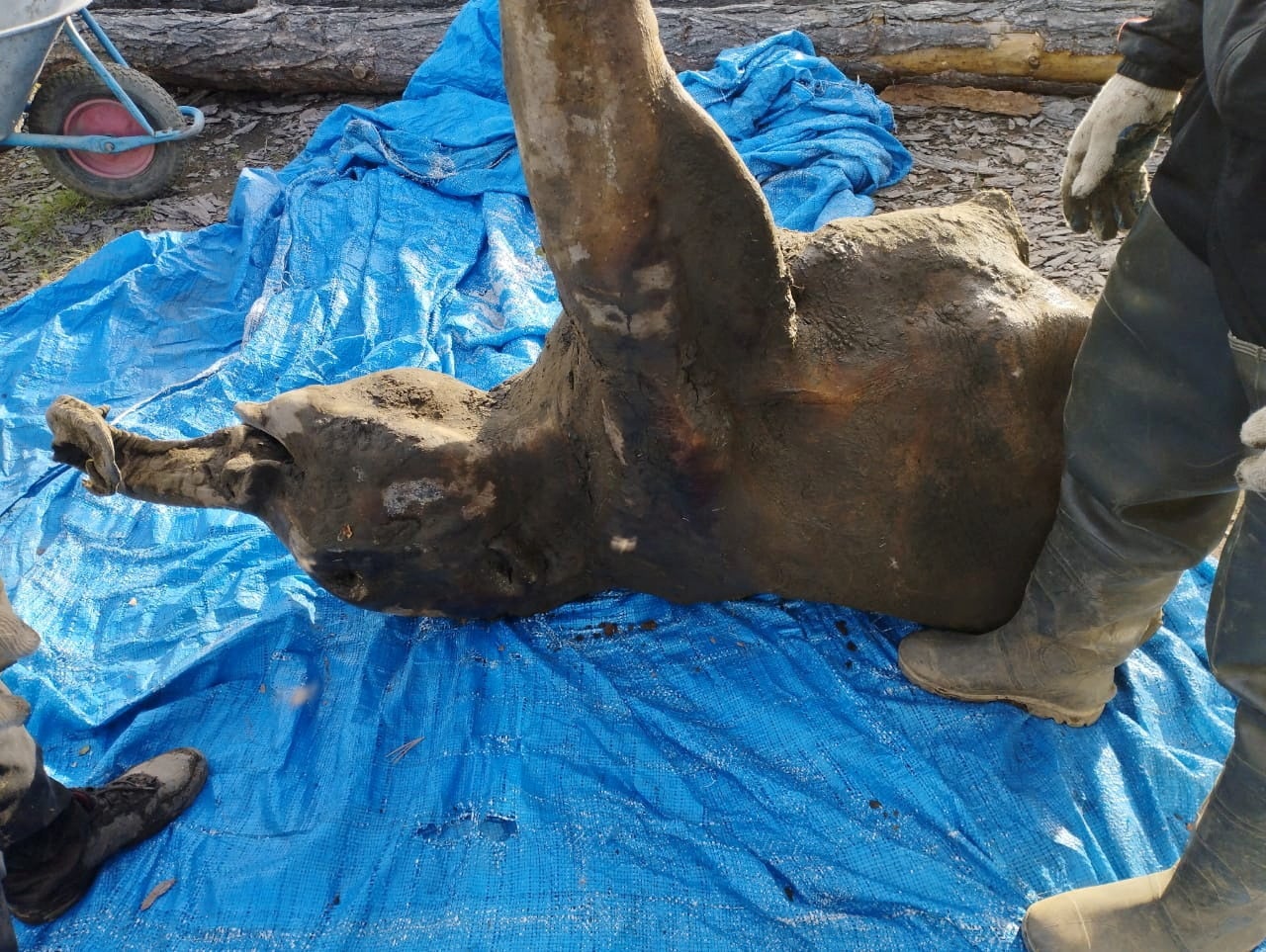
The 50,000-year-old remains of a baby mammoth have gone on display in Russia as scientists carry out research on the animal.
The 110kg creature, resembling a small elephant, was found at the bottom of a 260ft deep crater in the permafrost-covered region of Yakutia in Siberia earlier this year.
The carcass was brought to the surface on an improvised stretcher, said Maxim Cherpasov, head of the Lazarev Mammoth Museum Laboratory.

He said it was the best-preserved mammoth carcass in the world and is one of only seven whole remains ever found, according to experts.
Studies are now being carried out to work out her exact age at death, estimated at “one year old or a bit more”.
“As a rule, the part that thaws out first, especially the trunk, is often eaten by modern predators or birds. Here, for example, even though the forelimbs have already been eaten, the head is remarkably well preserved,” Mr Cherpasov said.

It is the latest of a series of spectacular discoveries in the Russian permafrost which is melting amid climate change.
Last month, scientists in the same vast northeastern region - known as Sakha or Yakutia - showed off the 32,000-year-old remains of a tiny sabre-toothed cat cub, while earlier this year a 44,000-year-old wolf carcass was uncovered.
Before this discovery, only six mammoth carcasses had been found in the world – five in Russia and one in Canada, the region’s North-Eastern Federal University said.

In 2010, the 39,000-year-old carcass of a baby mammoth was uncovered in Yakutia. It was named Yaku and was between six and nine years old when it died, researchers said.
Yakutia is a remote region bordering the Arctic Ocean. Its permafrost acts like a giant freezer that preserves the remains of prehistoric animals.






